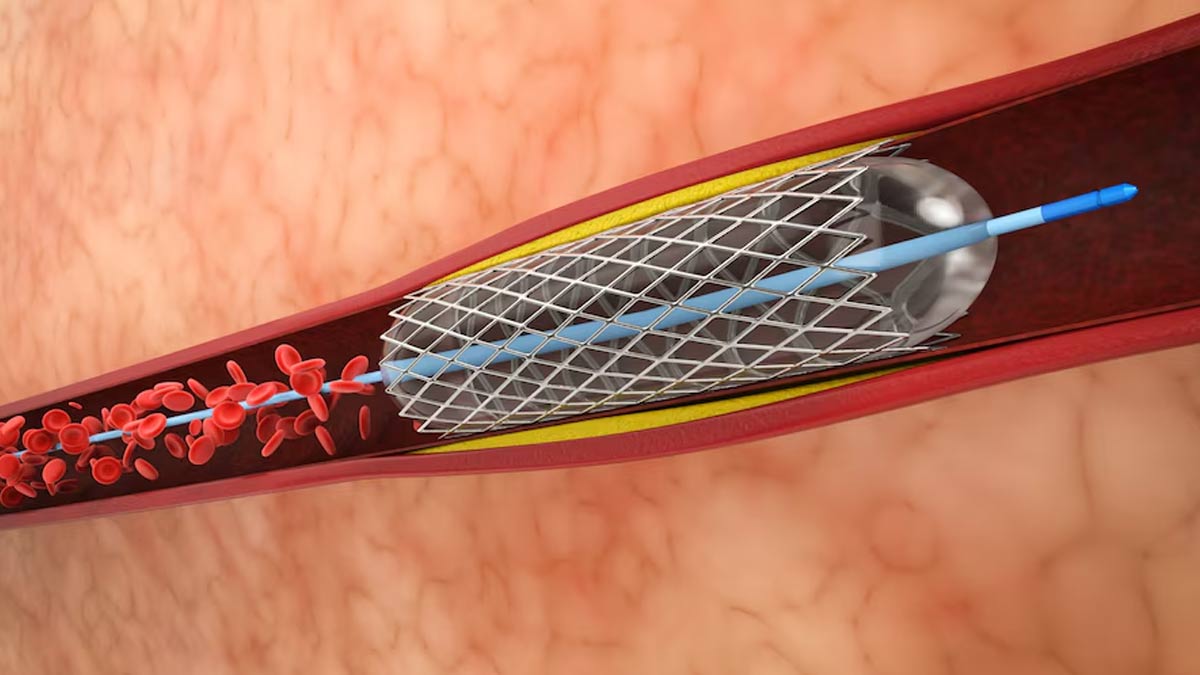
A 70-year-old female patient was admitted to Lilavati Hospital and Research Centre, Mumbai with complaints of breathlessness on exertion. Her condition started deteriorating rapidly since the last 7 months. She had to undergo recurrent heart failure admissions. Her son had flown down several times from Australia to be with his mother while she underwent repeated hospitalizations, thus affecting their lives considerably. She was diagnosed with a leakage in her mitral valve and blockage in her left and right main renal artery. Life started getting difficult for her due to repeated hospital admissions, resulting in loss of hope. She had stopped eating and was too frail and at high risk to undergo an open-heart surgery.
Table of Content:-
Recurrent Heart Failure Admissions: Impact on Patient and Family
The 2D Transesophageal echocardiography (TEE) confirmed severe mitral regurgitation. Mitral regurgitation refers to the leakage in the mitral valve. Mitral valve is located in between the left heart chambers. It controls the flow of blood from the lungs-left atrium to the left ventricle. When the heart pumps, the mitral valve closes and directs the blood in forwards direction in the body and prevents back flow. In mitral regurgitation, the mitral valve does not close completely and the blood instead of going forward into the body, leaks back into the lungs. This results in collection of water in the lungs and patients develop breathlessness. Slowly the blood pressure goes down and the kidney starts deteriorating.

Also read: What Are 5 Symptoms Of Heart Disease?
Open-heart surgery was refused as she was at very high risk due to her frailty. Transcatheter edge to edge repair (TEER) of mitral valve using the mitraclip device was the preferred treatment of choice and therefore advised to the patient.
Procedure Overview: MitraClip Device and Interventional Cardiology Team
The Mitraclip procedure was performed by Dr Ravinder Singh Rao (Interventional Structural Cardiologist) and team in the cath lab under general anaesthesia. A Catheter was advanced from the groyne vein to the right side of the heart. 3-D TEE ECHO was performed during the procedure to identify the correct site of leakage. A clip was deployed safely and successfully, eliminating the leakage immediately. Immediately the patient’s blood pressure normalized.
The patient was extubated (ventilator removed) immediately after the procedure and shifted to the ICCU. Her symptoms were relieved immediately post procedure. She was able to sleep comfortably for the first time in 7 months without feeling breathless.
Colour Doppler examination of renal vessels showed narrowing of both the right and left main renal artery. The left main renal artery was 90% stenosed and needed an urgent intervention.Therefore, the left main renal artery angioplasty was performed successfully a few days later. With regards to the procedure Dr Ravinder Singh Rao said, “The patient was extremely frail and underwent repeated hospital admissions due to which she had lost all hope of getting well. She desperately wanted to start living a normal life and perform her daily chores on her own instead of depending on her children. The next day of the mitraclip procedure she was mobilized and could walk without any support. Her happiness had no boundaries. MITRACLIP when done safely improves the quality of life and adds life to years.”
Also read: Cardiologist Shares 7 Warning Symptoms of Congenital Heart Disease in Men
Dr Rao and his team performed this unique procedure of MITRACLIP and left main renal artery angioplasty, successfully, which is rare and first of its kind in the country. Studies have shown that the outcomes of MITRACLIP depend on the operator's experience and expertise. The more the volumes the better are the outcomes of the procedure.
Also watch this video
How we keep this article up to date:
We work with experts and keep a close eye on the latest in health and wellness. Whenever there is a new research or helpful information, we update our articles with accurate and useful advice.
Current Version